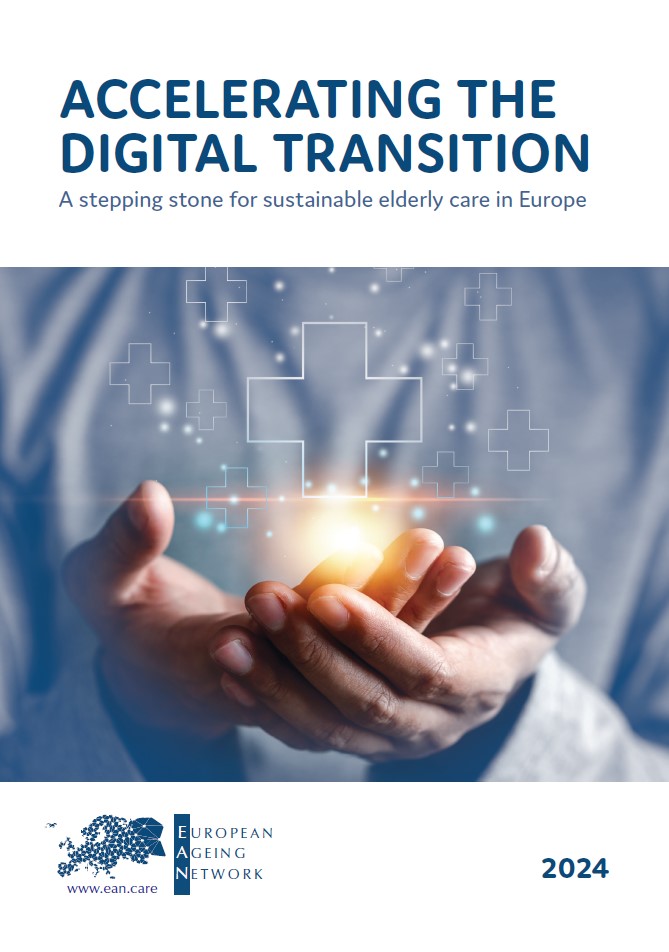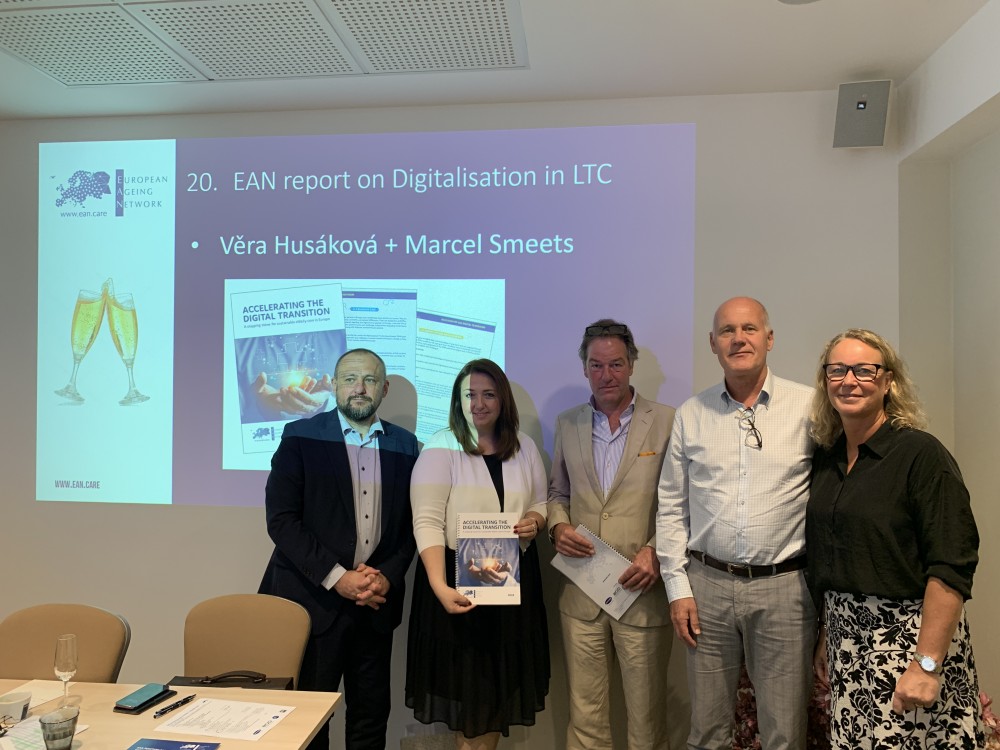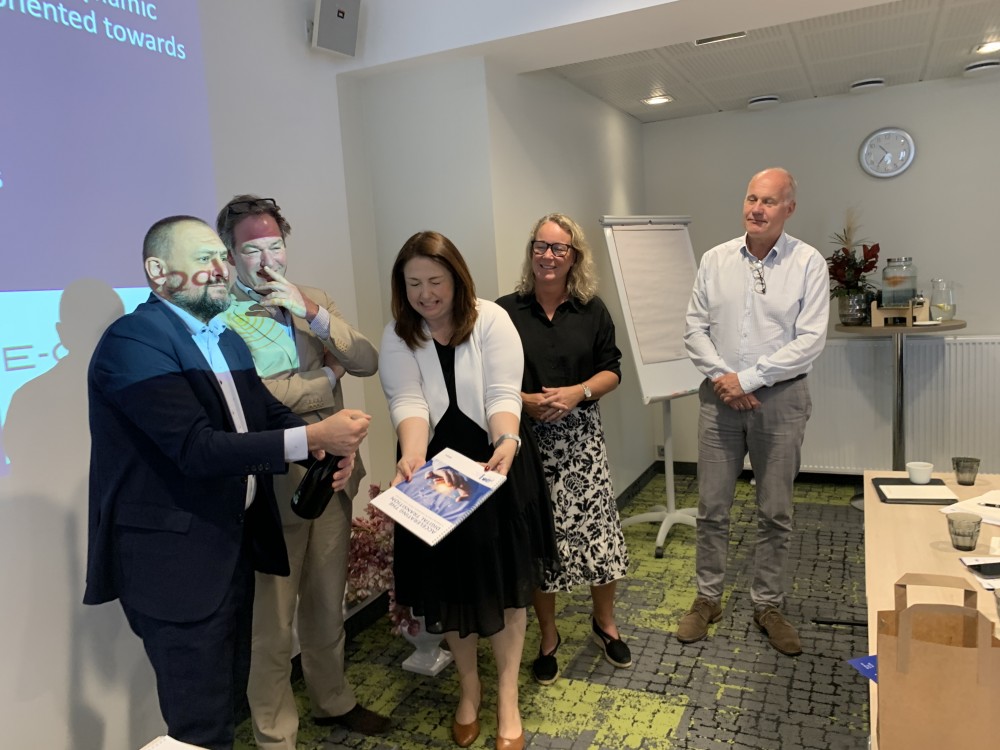The new EAN report on Digitalisation in LTC
 The European Ageing Network (EAN) is the European trade association of aged care and service
The European Ageing Network (EAN) is the European trade association of aged care and service
providers. Following its vision on aged care in 2030, The EAN strives for better quality of life of older
adults, while maintaining a high quality of care. In line with that vision, The EAN recognises the importance
of digitalisation and Information and Computer Technology (ICT) in high quality care provision
and its positive effects on quality of life. To better understand challenges and to further take
advantage of ICT and digitalisation, The EAN has set-up a working group ‘Digital Care’.
Buzzword or not, the time for a digital transformation of aged care is now. The digitalisation of European
aged care urgently needs a boost. Ageing, staff shortages and older people’s quality of life
require new methods of delivering aged health and social care services and a smart, wise and cost-effective
transition in the sector. The ageing population in Europe is growing rapidly, creating a higher
demand for innovative solutions to support older adults and their caregivers. The primary concerns
for care recipients are enhancing independence, improving quality of life, and ensuring safety and
wellbeing. There is a need for tools, and their implementation, to assist carers and informal caregivers
in providing effective and personalised care while also reducing their workload. The digital transition
of aged care in Europe seems to stumble behind other care sectors like hospitals and primary care.
The EAN found a lack of vision and underlying strategy, a lack of funding and insufficient skills and
training as the main reasons for this gap.
Age-tech is booming across Europe. The concept of Age-tech comprises a wide range of digital technologies,
products and solutions that particularly address the needs and demands of the ageing population
and can support aged care providers and support older adults to live a healthy, active and
independent life. Age-tech solutions include teleconsultation, emergency response systems, tracking
devices, home safety, and security. Other Age-tech areas are mobility devices e.g. walkers, scooters,
power-assisted wheelchairs, in-car technologies such as parking assistance or GPS navigation; aids
for vision/hearing impairment and other assistive technologies. Equally importantly, Age-tech devices
can help both formal and informal caregivers to perform their services more effectively, safely and
efficiently.


